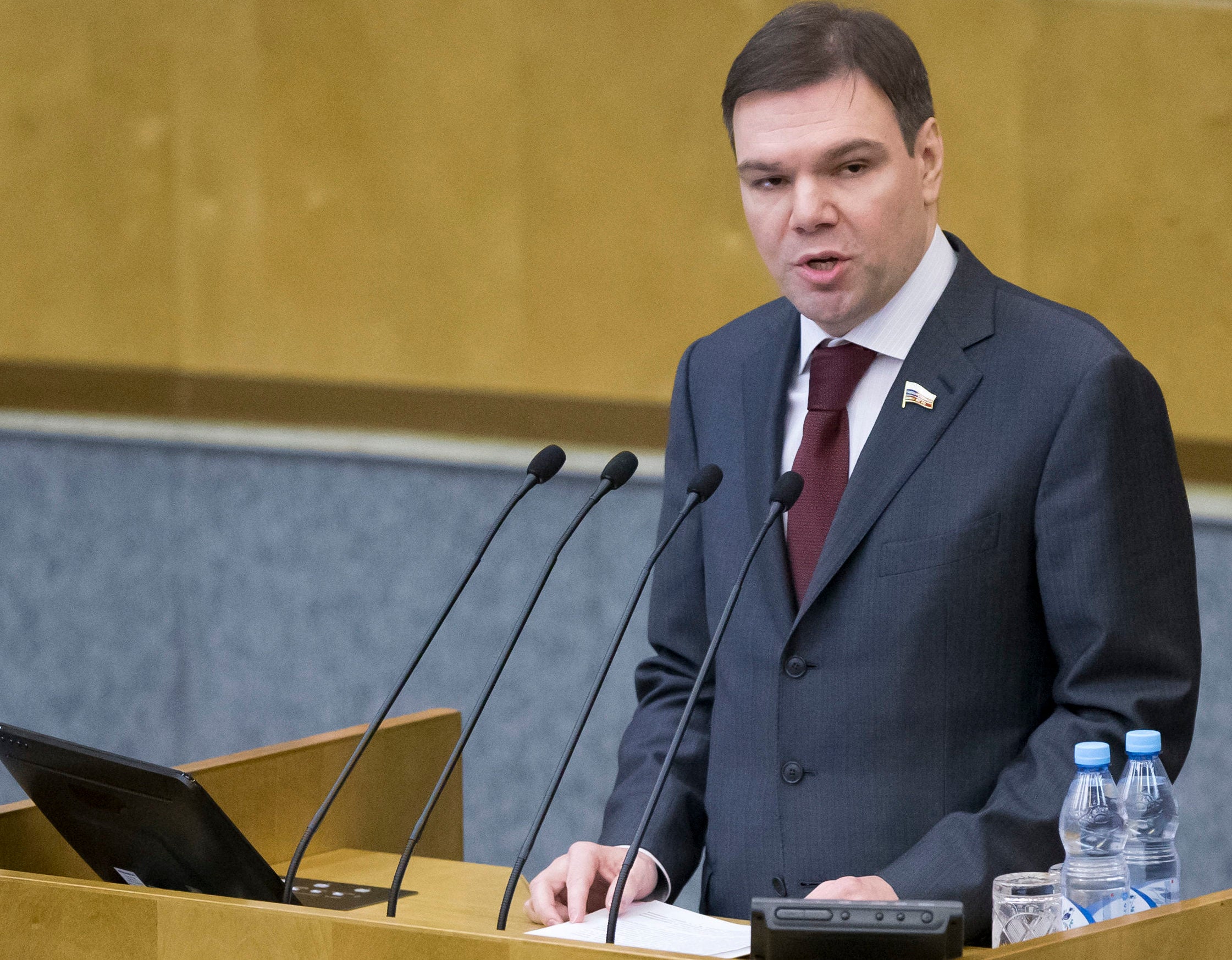
Russian legislators have unanimously approved a bill allowing the government to register international media outlets as foreign agents.
The move by the parliament’s lower house is a rapid response after the Russian state-funded TV channel RT registered with the US Justice Department as a foreign agent following pressure from the US government.
Legislator Leonid Levin (pictured) said the bill will provide a tool for the Justice Ministry to designate international media outlets as foreign agents.
Once registered, they will face requirements currently applied to foreign-funded non-governmental organisations.
The bill will go to the upper house and then to President Vladimir Putin for signing.
US intelligence agencies allege that RT served as a Kremlin tool to meddle in the 2016 presidential election. Russia has denied any interference.
Putin has criticised the US demand regarding RT as an attack on freedom of speech and warned that Russia would retaliate.
During Wednesday’s debates, State Duma speaker Vyacheslav Volodin described the new legislation as a “symmetrical answer” to the US and a signal that “our media can’t be treated like that”.
The bill will pass to the upper house which is expected to quickly rubber-stamp it next week before it goes to Putin.
The broadly phrased bill will leave it to the Russian government to determine which media outlets would be designated as foreign agents, said Leonid Levin, the head of the Duma committee for information.
He noted that the measure would allow Russia to mirror the US demands for RT or any other such action taken by other countries.
“I would like to hope that it will only be used once and there will be no need for more retaliatory action,” he added.
The media outlets singled out as foreign agents will face requirements currently applied to foreign-funded non-governmental organisations under a 2012 law.
The law, passed after massive anti-Kremlin protests in Moscow, requests all groups that receive foreign funding and engage in vaguely defined political activities to register as foreign agents.
It requires them to publicly declare themselves as such and regularly provide detailed information about their funding, finances and staffing.
Critics of the law have said the definition of political activity is so loose that it could be used against almost any non-governmental organisation.
Amnesty International criticised the new bill as an attack on media freedom.
“This legislation strikes a serious blow to what was already a fairly desperate situation for press freedom in Russia,” Denis Krivosheev, the group’s deputy director for Europe and Central Asia, said in a statement.
“Over the last couple of years, the Kremlin has been tirelessly building a media echo chamber that shuts out critical voices, both inside Russia and from abroad.”
Picture: AP Photo/Alexander Zemlianichenko
Email pged@pressgazette.co.uk to point out mistakes, provide story tips or send in a letter for publication on our "Letters Page" blog
